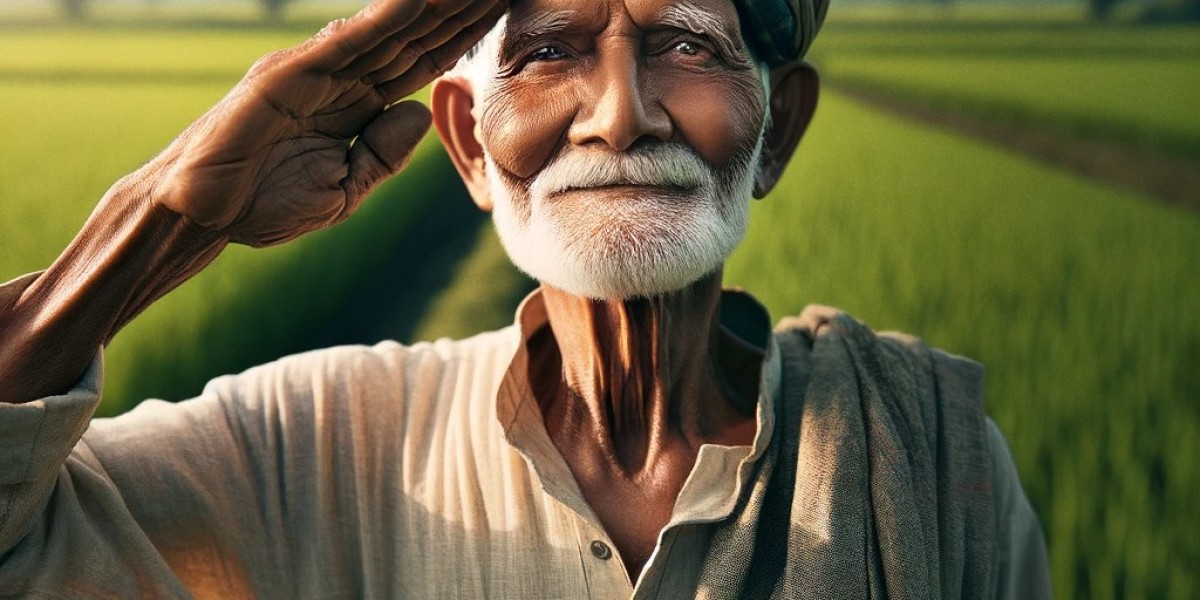Agriculture has been the backbone of economies worldwide, playing a crucial role in the sustenance and development of societies. In recent years, modern farming methods and commercial farming have emerged as pivotal components in enhancing agricultural productivity and sustainability. These advancements, coupled with initiatives like the Direct Benefit Transfer DBT PM Kisan scheme in India, are revolutionizing the agricultural landscape, ensuring better yields, financial security for farmers, and sustainable practices.
Modern Farming Methods
Modern farming methods encompass a range of techniques and technologies designed to improve the efficiency and output of agricultural activities. These methods include precision agriculture, integrated pest management, crop rotation, and the use of genetically modified organisms (GMOs).
Precision Agriculture involves using advanced technologies such as GPS, drones, and IoT sensors to monitor and manage crops with high precision. This approach allows farmers to apply water, fertilizers, and pesticides more efficiently, reducing waste and environmental impact while maximizing crop yields.
Integrated Pest Management (IPM) is another significant aspect of modern farming. IPM combines biological, cultural, physical, and chemical tools to manage pests in an economically and ecologically sound manner. By minimizing the reliance on chemical pesticides, IPM helps protect beneficial insects and reduces the risk of pesticide resistance.
Crop Rotation is a traditional practice enhanced by modern understanding of soil health and plant biology. By rotating crops, farmers can prevent soil depletion, reduce pests and diseases, and improve soil fertility. This practice is essential for maintaining sustainable agricultural systems.
Genetically Modified Organisms (GMOs) have also revolutionized farming by introducing crops that are resistant to pests, diseases, and harsh environmental conditions. GMOs can significantly increase yields and reduce the need for chemical inputs, contributing to both economic and environmental sustainability.
Commercial Farming
Commercial farming, or agribusiness, involves large-scale production of crops and livestock for sale, often involving advanced technologies and large investments. This type of farming is characterized by its focus on efficiency, productivity, and profitability.
Large-Scale Operations: Commercial farming typically involves large plots of land, advanced machinery, and sophisticated supply chains. This scale allows for economies of scale, reducing the cost per unit of production and increasing overall profitability.
Technological Integration: Commercial farms often adopt cutting-edge technologies, including automated machinery, advanced irrigation systems, and data analytics. These technologies enhance productivity and allow for more precise and efficient farming practices.
Market Orientation: Unlike subsistence farming, which is primarily focused on producing food for the farmer's family, commercial farming is market-oriented. Farmers grow crops and raise livestock specifically to sell them in local and international markets. This focus on market demand drives innovation and efficiency in farming practices.
The Role of DBT PM Kisan
The Direct Benefit Transfer (DBT) PM Kisan scheme is an initiative by the Indian government aimed at providing financial support to small and marginal farmers. Launched in 2019, this scheme has played a significant role in enhancing the income security of farmers, enabling them to adopt modern farming methods and participate in commercial farming.
Financial Support: Under the PM Kisan scheme, eligible farmers receive direct cash transfers of ₹6,000 per year in three equal installments. This financial assistance helps farmers invest in better seeds, fertilizers, and technologies, thereby improving their productivity and profitability.
Reducing Rural Poverty: By providing a steady income, the PM Kisan scheme helps reduce rural poverty and economic distress among farmers. This support is crucial for small and marginal farmers who often struggle with fluctuating incomes due to unpredictable weather and market conditions.
Encouraging Modernization: The financial stability provided by the PM Kisan scheme allows farmers to take risks and invest in modern farming methods. This modernization is essential for increasing agricultural productivity and sustainability, ensuring that farmers can compete in the global market.
Promoting Inclusivity: The DBT mechanism ensures that the benefits reach the intended recipients directly, reducing the chances of corruption and administrative delays. This inclusivity is vital for empowering small and marginal farmers, enabling them to access resources and opportunities that were previously out of reach.
Conclusion
The integration of modern farming methods and commercial farming, supported by initiatives like the DBT PM Kisan scheme, is transforming agriculture. These advancements are not only enhancing productivity and profitability but also promoting sustainable and inclusive agricultural practices. As farmers adopt precision agriculture, integrated pest management, crop rotation, and GMOs, they are better equipped to meet the growing demands of a global population while protecting the environment. The financial support from the PM Kisan scheme further empowers farmers, ensuring that they can invest in these modern practices and thrive in the competitive agricultural market.








